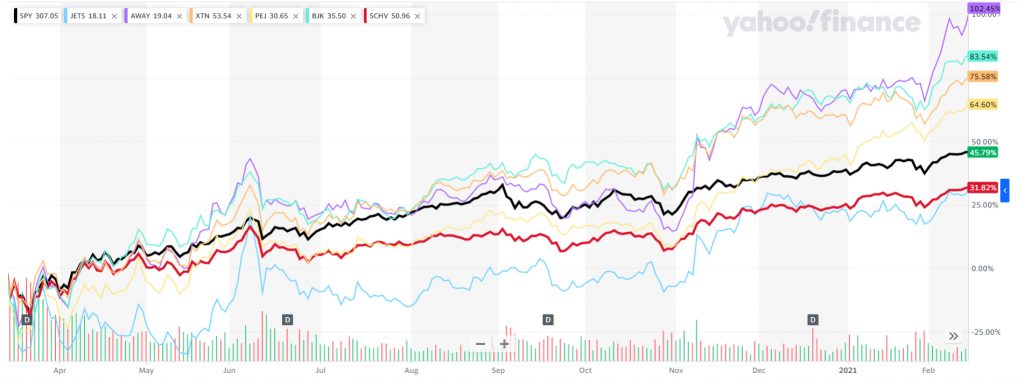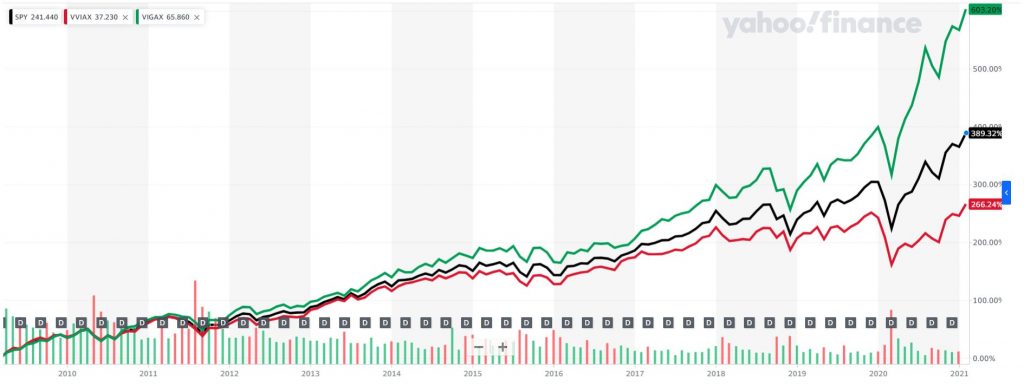I’ve had a couple of conversations with some lay investors of late. Both times, friends approached me with questions about investing. They were looking to profit off the pandemic, intrigued by the opportunity to buy certain stocks on the cheap. Travel and tourism stocks – they reasoned – were ripe for recovery (once the impacts of the pandemic subside).
It’s an interesting idea; are tourism stocks the next big thing – apt to provide generous investment returns? Maybe. Or maybe the market has already priced in that very investment thesis.

Consider that four out of five travel and leisure ETFs outperformed the S&P 500 by double digits since the bottom of the pandemic crash. That is, market prices arguably already reflect the future recovery of the tourism industry.
Use a Low-Cost, Diversified Value Fund
The lesson above is simple: if you’re a retail investor hypothesizing about an investment strategy, you’re probably too late.
Yet, the desire to buy what’s out of favor is a good one. That’s because buying what’s unpopular is a scientifically-proven investment strategy for outperformance.
Unfortunately, determining what’s out of favor is not an easy task. This is especially the case for the lay investor – who is likely busy with everything in life that doesn’t involve researching which publicly-traded companies are selling at a discount.
Fortunately, implementing a strategy of buying out-of-favor stocks is simple. Pick a low-cost, diversified value fund. With value funds, you don’t need to figure out what’s out of favor. The fund picks up whatever is trading at a discount. Once you’re invested in a value fund, you’re automatically buying what’s on sale.
Value is a Deal Right Now
Sounds easy, right? Well, while picking a low-cost, diversified value fund is easy, sticking with it can be difficult. That’s because what is out of favor can stay out of favor for quite some time.
Consider that an investment strategy of buying what’s unpopular (value) has underperformed buying what’s popular (growth) since the bottom of the financial crisis. That’s nearly 13 years of underperformance!

Yet, this pronounced and extended underperformance is what makes such a great investment opportunity right now. Value’s extensive underperformance is a function of value becoming an even better deal over time, with the potential for inevitable (overdue?) outperformance – as is argued by the nerds looking at the metrics.
Just Buy Value
In short, lay investors and their stewarding investment advisors are likely better off outsourcing investment decisions to a proven system, a system that will consistently buy what is (eventually) due for a rebound. This works better than buying what’s already appreciated, given a dated investment hypothesis. It’s also a lot easier.
Disclaimer: This post is for entertainment purposes only. This is not investment advice. Speak with your financial professional before making any investment decisions. Past performance is not a guarantee of future returns.
Leave a Reply